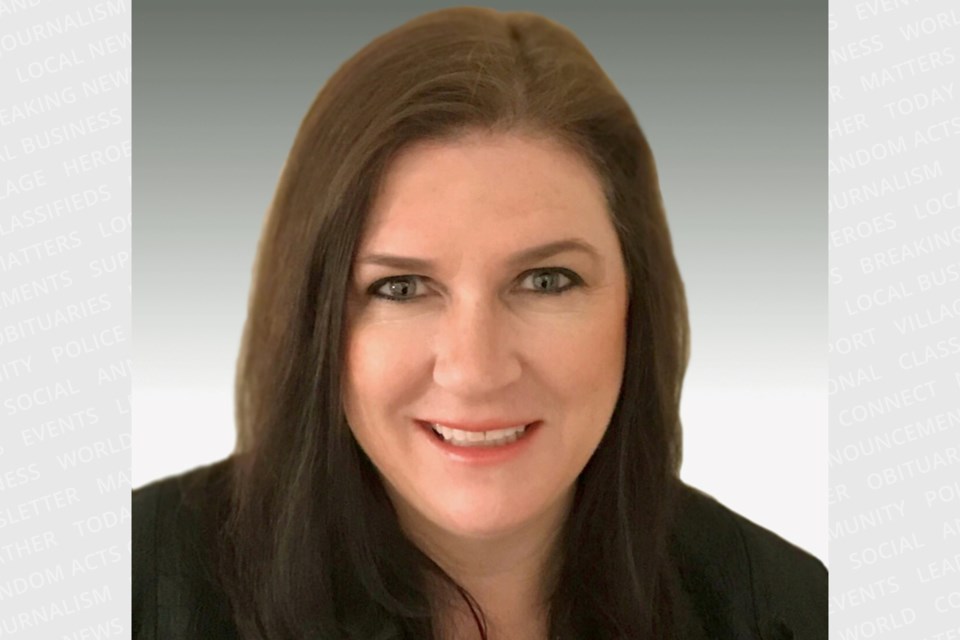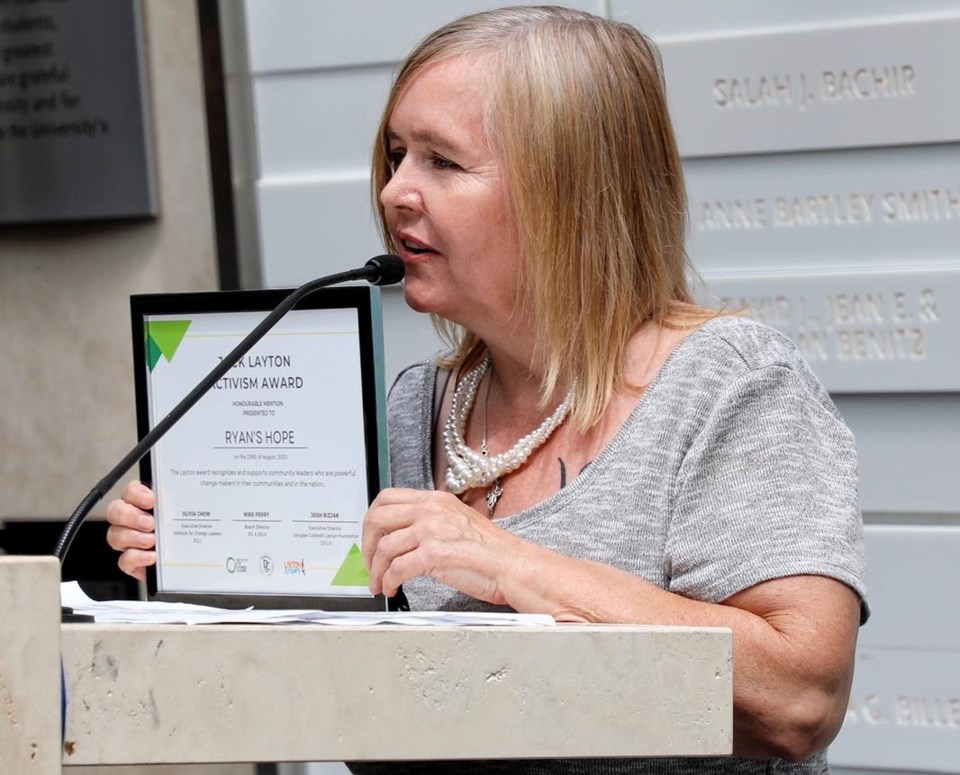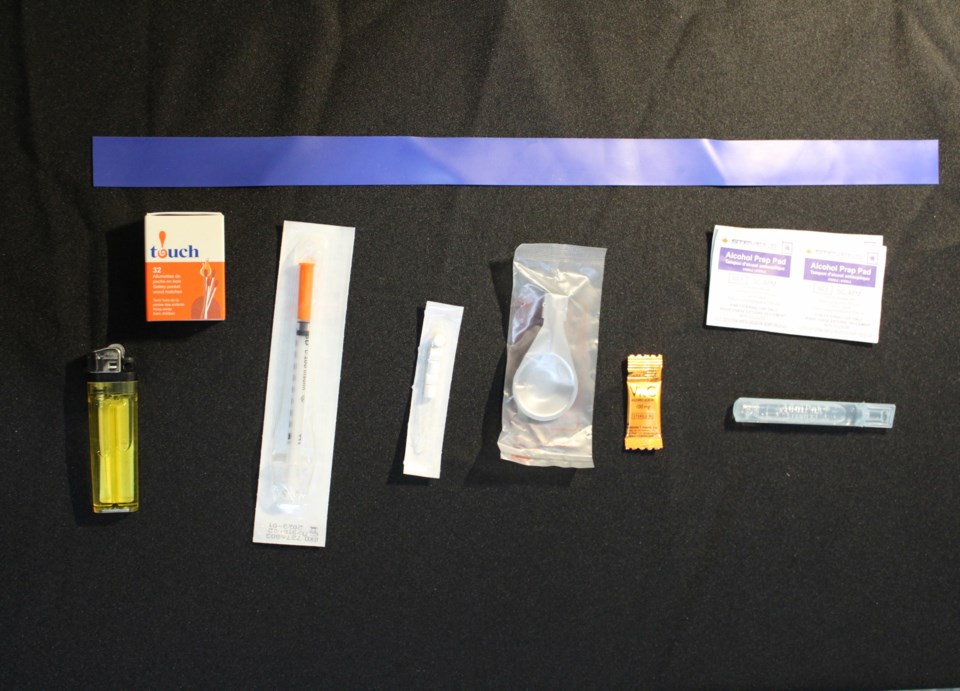This article was first published by BarrieToday, a Village Media publication.
Local health officials and advocates are calling the decision to withdraw an application for a proposed supervised consumption site (SCS) in Barrie “devastating” and one that will ultimately result in more deaths from the opioid crisis.
“We know we are impacting people’s lives that would benefit from this model of care," Dr. Valerie Grdisa, chief executive officer for the Simcoe County branch of the Canadian Mental Health Association (CMHA), told BarrieToday.
"I’d hoped it would never get to this, and I’d kind of committed that I would never want to be in a position where I would have to make a decision about not continuing to pay the rent,” she added.
Grdisa said the complete lack of response from the province’s Ministry of Health “says a lot in itself,” and is ultimately what forced the organization to make the decision to rescind its application for an SCS facility at 11 Innisfil St., near the city’s downtown.
Applications for what the province refers to as a Consumption and Treatment Services (CTS) facility were submitted to Health Canada and the Ontario Ministry of Health on Oct. 7, 2021.
An SCS/CTS provides a safe space and sterile equipment for people to use pre-obtained drugs under the supervision of health-care staff. Consumption means taking opioids and other drugs by injection, smoking, snorting or orally.
With no word from the ministry, coupled with some of the messaging around harm reduction, Grdisa believes no decision will be made anytime soon, but the local cause could be resurrected.

“If and when there’s a change in understanding or action-related … then we will re-engage," she said. "My team put together more than 700 pages of both the federal and provincial application and it’s ready to hand to another partner if they think they will have a better chance.
“CMHA Simcoe County is an accountable organization that proposed a proven solution and agreed to carry the baton," Grdisa added. "We are not dropping it. We are ready to pass it onto another partner with all the lessons learned and/or take it back when and if there is a change in political will or mindset.”
Grdisa added the CMHA had hoped its 2021 application would have been approved and funded by the Ministry of Health, based on the devastating impacts of opioid-related overdoses and deaths, including the secondary effects on infants, families and loved ones as well as the economic development.
However, the lack of response by the minister’s office and no further communications from ministry officials ultimately left them without a choice, she said.
“There was no other decision to make. Our rent contributions for a space never approved exceeded $130,000," she said. "We will ‘rethink’ our next steps with our community partners and we will reconsider if or when the (province) signals that it supports this model of care and other harm-reduction strategies.”
These "realized" funds will be redirected to the operational pressures and overspend that the organization offsets at year-end with approval by Ontario Health Central, Grdisa said.
“When we have a surplus at year-end, we invest in client interventions and/or individualized needs," she added. "For the past three years, we have not been able to make those investments and we will address the ‘here and now’ as we await government policy directions.”
The Ford government launched a broad SCS review following a shooting outside of a site in Toronto's Leslieville neighbourhood last summer, with Michael Tibollo, the associate minister of mental health and addictions, saying in the fall that this would include the development of new safety protocols.
That review ultimately meant all pending and new applications for SCS facilities in Ontario were put on hold indefinitely.
Rev. Christine Nayler, who co-founded Ryan’s Hope following the death of her son to toxic drug poisoning, said she was still processing the news that the SCS application had been withdrawn. She told BarrieToday it left her battling a plethora of emotions.
“Sadness, anger … I am fighting back the tears because I know lives are going to be lost and people are going to know my pain,” Nayler said. “I know it must have been a very difficult decision for CMHA to make … but I understand because they can’t continue to put out money not knowing when, and if, it’s going to be approved.
"This totally falls on the provincial government and it makes me so angry because it’s lives that are the line," she added. "Those lives matter. Those are people’s children, brothers and sisters.”
Mayor Alex Nuttall told BarrieToday his stance on encouraging treatment and rehabilitative services has not, and will not, change going forward.
“These folks need support to help overcome the addictions in which they are grappling and it’s my hope that this is where the province and the County of Simcoe will invest their resources,” he said.
Although the province said it was merely pausing any new and existing applications, both Grdisa and Nayler say they have little confidence that the applications will be “unpaused.”
“Listening to their words, I think they have a pretty strong mindset related to what they believe," Grdisa said. "I am a clinical scientist by background and this is a complex issue and human-made problem. To wait for the fallout and delay strategies while people die is simply the wrong thing to do.

“I speak with the business community, especially in downtown Barrie, and we are all committed to finding a solution," she added. "As the CEO, I do sometimes receive anger from community members and I don’t think they understand we are committed to doing everything possible with the funding that is provided to us to respond to this societal crisis.”
Nayler says she sees the province taking a different route.
“The Ontario government has been clear that they want to follow the Alberta model, which is a treatment-based model of dealing with the drug crisis … which we all know is having devastating effects in Alberta and is not actually saving lives," she said. "Their drug deaths have gone up dramatically.
"Not everyone who uses drugs has an addiction issue, and we know involuntary treatment doesn’t work … but that’s what the Ontario government is pushing for,” Nayler added. “I don’t see, under the current government, that there will be an opportunity to bring something like this back to the table, but I think it’s something we have to keep fighting for.”
As long as the provincial government refuses to make a decision, Grdisa says everyone’s hands are tied.
“I get that sometimes they delay and think about their policy directions and their philosophical underpinnings as an elected party … but we are not talking about a one- or two-year delay now," she said. "We’re talking no decisions have been made in well over four years with one of the other sites. If you’re not going to fund the CTS sites, then enhance services in other community sites … because these individuals do not belong in hospitals and they do not belong in locked-up settings.
“We have to give our heads a shake as Ontarians if we don’t think this could be any one of us, or those that we love," Grdisa added. "This is a situation where we’ve created access beyond belief."
Grdisa also had strong words when looking at the bigger picture.
"It was the health sector that started this, through the pharmaceutical companies and the prescribers and here we are 40 years later with this significant problem," she said. "We have to come together and not divide on what needs to happen.”
At the end of the day, the lack of a decision is devastating, said Grdisa, adding they are “baffled” by what she said is the government’s lack of understanding of harm-reduction strategies.
“Yet again, we co-created this societal problem and they must be part of the evidence-based solutions," she said. "We can't not optimize every single strategy and every model of care to address a problem that Ontarians and Canadians are not understanding.
"The alarms were going off 20 to 30 years ago in Indigenous communities because of the alarming rate of opioid prescriptions back then. Obviously when there started to be accountability for the prescribers in the last decade then the criminal market took over …but we created this problem,” Grdisa added.
“People turned a blind eye and here we are trying to implement every single type of intervention based on individualized needs like we would for any other health condition and it’s almost like people are turning their backs on us when we’re just trying to help.”
A global day of action to end the war on drugs, called Support Don't Punish, is scheduled to take place on Wednesday (June 26) beginning at 6 p.m. at Barrie City Hall.
The event, hosted by Ryan’s Hope and Moms Stop The Harm, will include a community meal, followed by guest speakers, songs and solidarity. Speakers will include Nayler, the Gilbert Centre's Keenan Aylwin (who is also a former city councillor), community activist Michael Speers, and Peer Connex founder Ryan McPhail.




